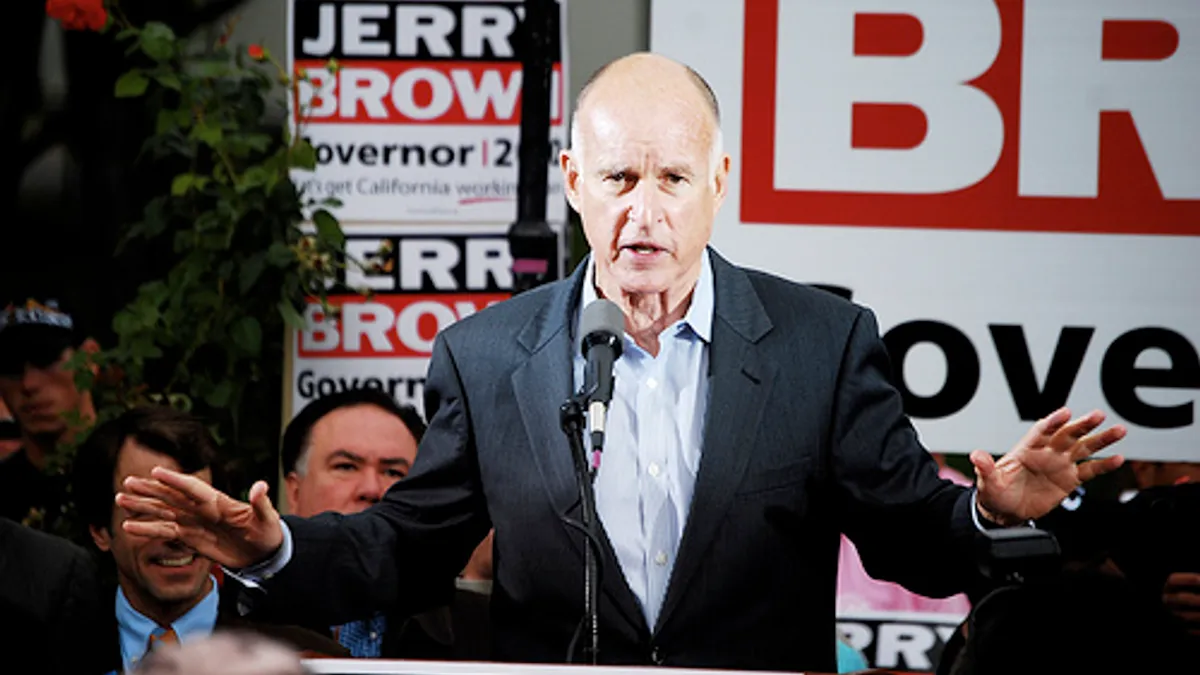Dive Brief:
- California's plan for a regionalized power market was already on hold due to concerns over governance, but despite a positive reception from other states the election of Donald Trump has made officials wary of moving forward.
- Politico reports Wyoming Gov. Matt Mead has indicated any agreement on a regional power market would have to wait until President-elect Trump takes office and determines which way he will move on energy policy.
- This summer, California Gov. Jerry Brown paused the California Independent System Operator's plans to expand the existing Western Energy Imbalance Market into a full ISO, citing governance concerns and the potential setbacks to California's emissions goals.
Dive Insight:
The concept of a regionalized power market was a complicated matter to begin with. California and other participants of the Western EIM have been mulling plans to integrate into a full organized market, but those efforts are on hold over uncertainty as to who would run the ISO.
Trump's election last month has muddied the waters further, with concerns that a regional market that seemed doable on one day could come under attack from federal authorities the next.
"We could all agree on something today and it could be off the table in two months," Wyoming Gov. Mead told Politico. Democrats reportedly fear intervention from FERC, while others wonder if weakened environmental regulations under Trump could remove incentives to join a regional market.
Despite forecasted cost benefits in a regional market, there have been concerns that it could set California back from progress made on greenhouse gas emissions as states with more fossil fuels begin trading.
And governors in each state are worried about ceding control of energy policy. This summer, Brown sent a letter to other state governors citing too much uncertainty to forge ahead at the time.
"There remain some important unresolved questions that would be difficult to answer in the remainder of this legislative session,” Brown wrote in the August letter. "Though California's legislature last year approved the expanded grid, there have been concerns about how the new market would function, as well as competing proposals."
The California ISO had already made several concessions to transmission owners wary of joining a regionalized market, many of whom saw downsides to joining a regional market potentially dominated by the largest economy in the country. Brown had indicated plans to get a plan to legislators next month, but it is unclear how Trump's election could impact that timeline.
In July, the California ISO issued new governance documents which aimed to protect state authority over matters regulated by the states themselves, a concession to those who believed the state could wield too much influence.















